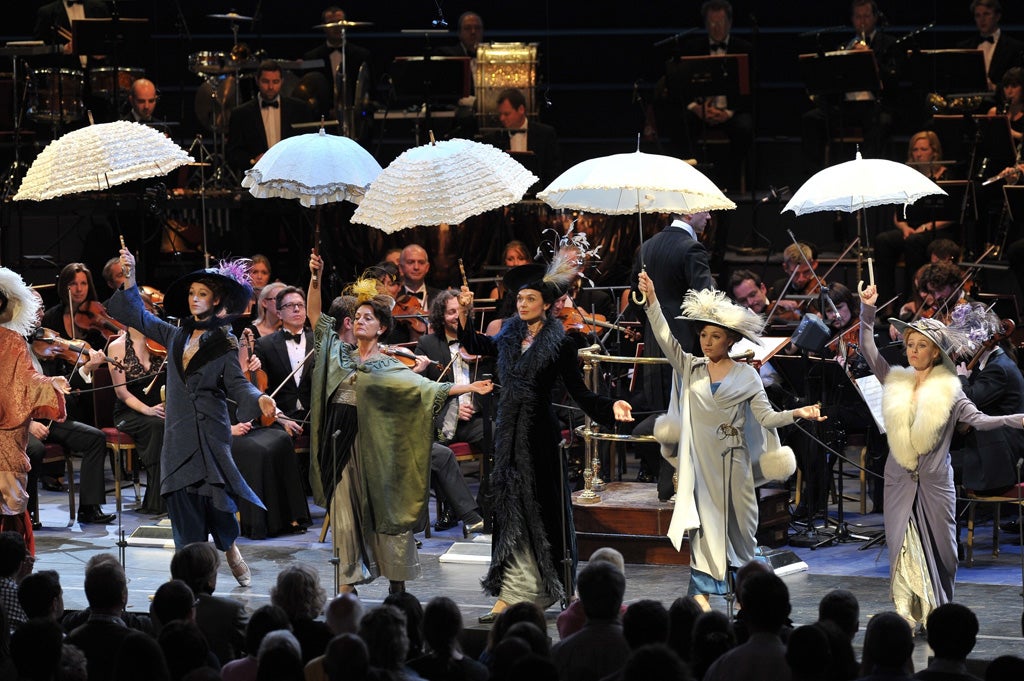Prom 2: My Fair Lady Beechey/Andrews/Wilson *****; Prom 3: Pelleas et Melisande Orchestre Revolutionnaire/Gardiner Royal Albert Hall ****

After an opening fuelled by tokenism and filled to the brim with Edwardian sludge, the Proms redeemed themselves with a brilliant performance of the best-ever Broadway musical, followed by an authoritative account of a great Symbolist opera.
Everything felt right as John Wilson led his orchestra in Andre Previn’s luxuriant scoring of the overture to ‘My Fair Lady’. While the top-hatted and ball-gowned chorus made their entrance upstage, downstage the Covent Garden Cockneys were choreographed into a picturesque simulacrum of a flower market.
Enter - with an alley-cat screech - Annalene Beechey as Eliza, and Anthony Andrews as Professor Higgins: if she had more than a touch of Audrey Hepburn, he was resolutely his own man, but just as suavely conscious of his superiority as the inimitable Rex Harrison.
Sparkling dialogue segued into Beechey’s "All I want is a room somewhere" sung with sweet assurance, then on came Alun Armstrong as an epically-coarse singing dustman with his ‘little bit o’ luck’.
All went like clockwork thanks to Shaun Kerrison’s beautifully-paced direction. Sian Phillips’s shocked reaction to her son’s taking up with a flower girl recalled Edith Evans as Lady Bracknell; Julian Ovenden’s delivery of "On the street where you live" melted the heart, and as teacher and pupil gradually reversed roles the comedy was flawlessly played out, with the entire hall joining in ‘Get me to the church on time’, and the denouement coming as ambiguously as Lerner and Loewe could have wished. Wonky miking apart, a perfect evening.
Scaling the rarefied heights of Debussy’s ‘Pelleas et Melisande’, John Eliot Gardiner and his Monteverdi Choir and Orchestre Revolutionnaire et Romantique gave a performance which was in many ways definitive.
In Laurent Naouri - a bass-baritone with huge vocal presence - he had a magnificent Golaud, and in the bright-toned Phillip Addis a fine Pelleas, while John Tomlinson made a thunderous Arkel. But the Melisande of Karen Vourc’h represented a structural weakness in that, though she had bags of power in reserve, she chose to sing near-inaudibly during what should have been her most dramatic scenes.
But there was much else to admire as the tragedy pursued its somnambulistic course, floating along on the most magical orchestral playing I have heard in years.
Michael Church
Subscribe to Independent Premium to bookmark this article
Want to bookmark your favourite articles and stories to read or reference later? Start your Independent Premium subscription today.

Join our commenting forum
Join thought-provoking conversations, follow other Independent readers and see their replies